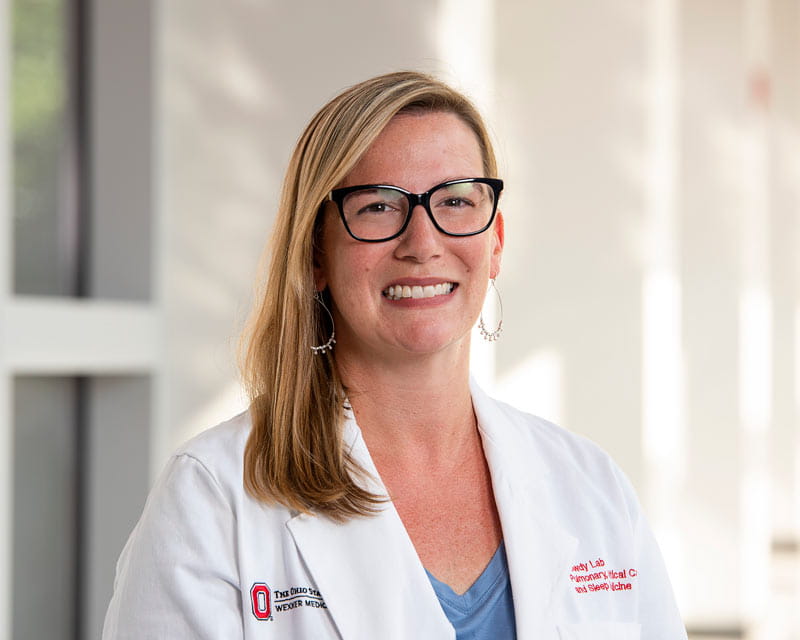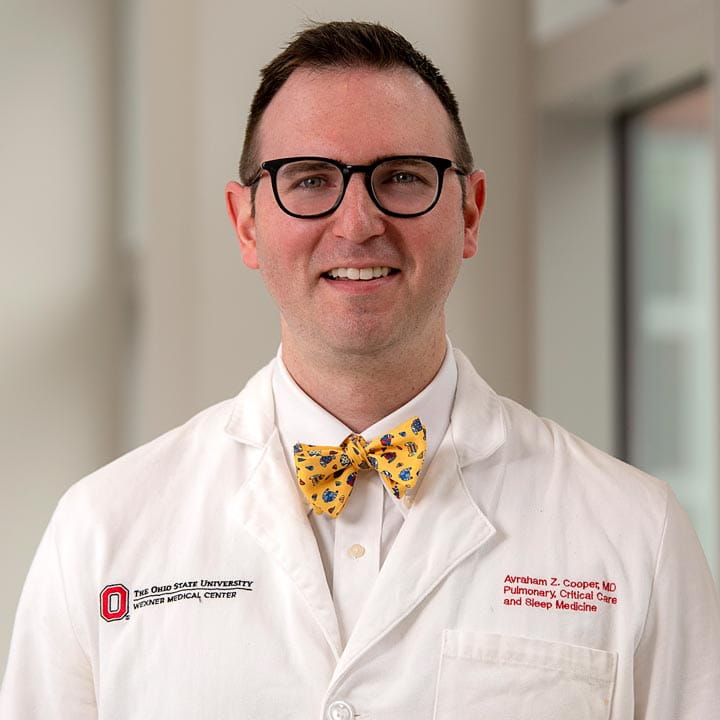
Ohio State Researchers Launch NIH-Funded Study on Ozone-Induced Pulmonary Inflammation
 A recent study involving a random sample of 650 physicians across 14 specialties at the top 10 hospitals from the 2021 U.S. News & World Report “Best Hospitals” Honor Roll revealed that although approximately 70% of physicians have a social media presence, their actual posting activity is low. In fact, of those with a profile on Twitter, Facebook, Instagram, LinkedIn, ResearchGate and/or personal websites and blogs, approximately 90% never post. However, Avraham Cooper, MD, from the Division of Pulmonary, Critical Care and Sleep Medicine at the Ohio State Wexner Medical Center, is among a group of physicians who are leveraging their social media presence for tremendous professional advantage.
A recent study involving a random sample of 650 physicians across 14 specialties at the top 10 hospitals from the 2021 U.S. News & World Report “Best Hospitals” Honor Roll revealed that although approximately 70% of physicians have a social media presence, their actual posting activity is low. In fact, of those with a profile on Twitter, Facebook, Instagram, LinkedIn, ResearchGate and/or personal websites and blogs, approximately 90% never post. However, Avraham Cooper, MD, from the Division of Pulmonary, Critical Care and Sleep Medicine at the Ohio State Wexner Medical Center, is among a group of physicians who are leveraging their social media presence for tremendous professional advantage.
With more than 87,000 Twitter followers as of October 2022 – follow him @AvrahamCooperMD – Dr. Cooper tweets pulmonary-related and other medical or educational content and pins “tweetorials” on his page, which are a series of short posts about a single topic. He also regularly comments and shares tweets from other accounts. His primary audience is other health care professionals, but he also counts fellow medical educators, patients and patient advocacy groups among his followers.
“I started on Twitter because I thought it would be a great way to stretch and grow my skills as an educator,” he says. “With a limited number of available characters and a remote audience with often short attention spans, I’m forced to really ‘thread the needle’ – I have to figure out the best way to communicate complex concepts in a way that people can easily understand. That ends up helping me be a more efficient teacher in the classroom and at the bedside too.
“It’s also created an incredible community with shared medical interests that’s broadened my own perspective and exposes me to diverse ideas well beyond my local area. I’ve met up with some of my online colleagues at in-person conferences and forged meaningful collaborative relationships and friendships, and I know that there are multiple papers that I wouldn’t have co-authored without my online connections.”
For physicians interested in developing their own social media footprint, Dr. Cooper has five basic tips for success.
Building on Dr. Cooper’s success with tweetorials, he launched a podcast in 2020 with two colleagues from Boston, an internist/hospitalist and an internal medicine resident. The Curious Clinicians – described as “a medical podcast that asks ‘Why?’” – already has almost 60 completed episodes exploring why diseases present in certain ways, the mechanisms of treatments used, why the human body functions as it does and more. It even offers continuing medical education credit. “The podcast has been another way to expand the quality of my teaching,” Dr. Cooper says.
“Both it and my Twitter account have been a great way to reach learners from across the world, and I’m constantly practicing how to present new material. Each opportunity has improved what I share and how I teach here at Ohio State.”
Learn more about innovations in care and research from the Division of Pulmonary, Critical Care and Sleep Medicine.